Maintaining EV charging stations is a crucial process to ensure stable performance, safety, and longevity of the system. The process includes hardware inspection, software updates, cleaning, and system protection against environmental factors.
Maintenance and Inspection Schedule for EV Charging Stations
EV charging station maintenance is dependent on the inspection schedule and frequency, adjusted based on usage levels and environmental conditions. High-demand or harsh environments may require monthly checks, with comprehensive audits quarterly to maintain optimal performance. Less frequently used stations can reduce maintenance frequency but should ensure regular basic checks.
Maintaining the efficiency and safety of an EV charging station plays a critical role in modern energy systems. The maintenance and inspection schedule should align with the use frequency and specific environmental conditions of each location. The activity of EV charging maintenance aims not only to detect potential issues early but also to extend the device’s lifespan. Maintenance plans can be divided into multiple steps, such as monthly basic checks and quarterly comprehensive inspections.
- Monthly Basic Checks: This initial step in EV charging maintenance helps in timely detection of visible wear like frayed cables, damaged connectors, dirt, or oxidized charging ports.
- Quarterly Comprehensive Inspections: This includes detailed evaluations of electronics, mechanical features, and cooling systems, with software updates being a vital part to enhance charger performance.
- Adjustment for Conditions: Stations located in high-traffic areas or harsh weather conditions may require increased maintenance frequency, even on a weekly basis.
Charging station inspection activities are not limited to identifying malfunctions. It involves thorough checks of ports, cables, and connectors to sustain stable connectivity. Proper cleaning to protect paintwork and screens is a key step in EV charger upkeep. Additionally, inspection of cooling and refrigeration systems is crucial to prevent overheating during charging.
Regular software updates are crucial for ensuring dynamic functionality and optimal performance. By measuring and assessing charging performance, businesses can anticipate and address diminishing signs promptly, thereby optimizing user time and energy.
Overall, the ultimate goal of maintaining and inspecting charging stations is to ensure safety, minimize malfunctions, and enhance operational performance. Consequently, device durability is improved, and the user experience during charging is enriched.
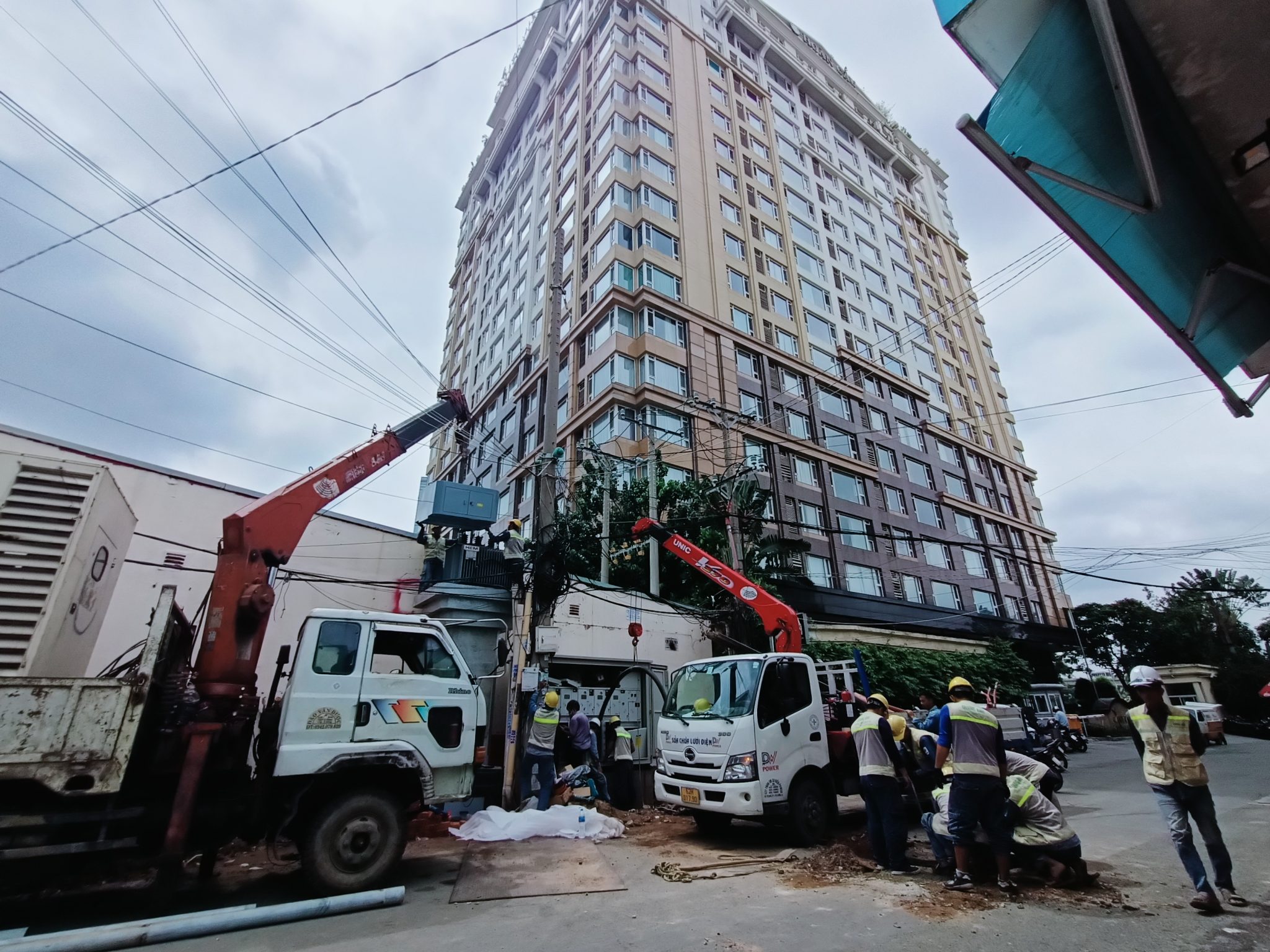
Key Maintenance Tasks for EV Charging Stations
Maintaining EV charging stations involves routine visual inspections, control software updates, and equipment cleanliness. Regular checks of cables and connectors prevent wear and tear, while cleaning station surfaces and replacing old components help avert potential issues.
Station Maintenance: Building Safety for Sustainable Growth
Maintaining EV charging stations is vital for ensuring safety and optimizing performance during operations. Primary maintenance activities include:
- Electrical Safety Checks: Essential for identifying and promptly addressing risks of short circuits, fires, or electrical hazards, ensuring the safety of circuit boards, wiring systems, and electrical devices.
- Replacing Worn Components: Sockets and charging cables must be regularly replaced to avoid damage. Periodic checks of both cables and socket plugs ensure a secure and uninterrupted connection.
- Charger Calibration: This process optimizes charging efficiency, conserving energy and time, by ensuring precise calibration for stable device operation.
- Mechanical and Electrical System Cleaning: Comprehensive maintenance of the entire system, including electronics, mechanics, and cooling systems, extends the longevity of devices.
- Troubleshooting Charging Stations: Prompt detection and repair of emerging damages prevent unexpected halts and high future repair costs.
These tasks should adhere to a regular maintenance schedule, adjustable according to weather conditions and the installation environment of each charging station.
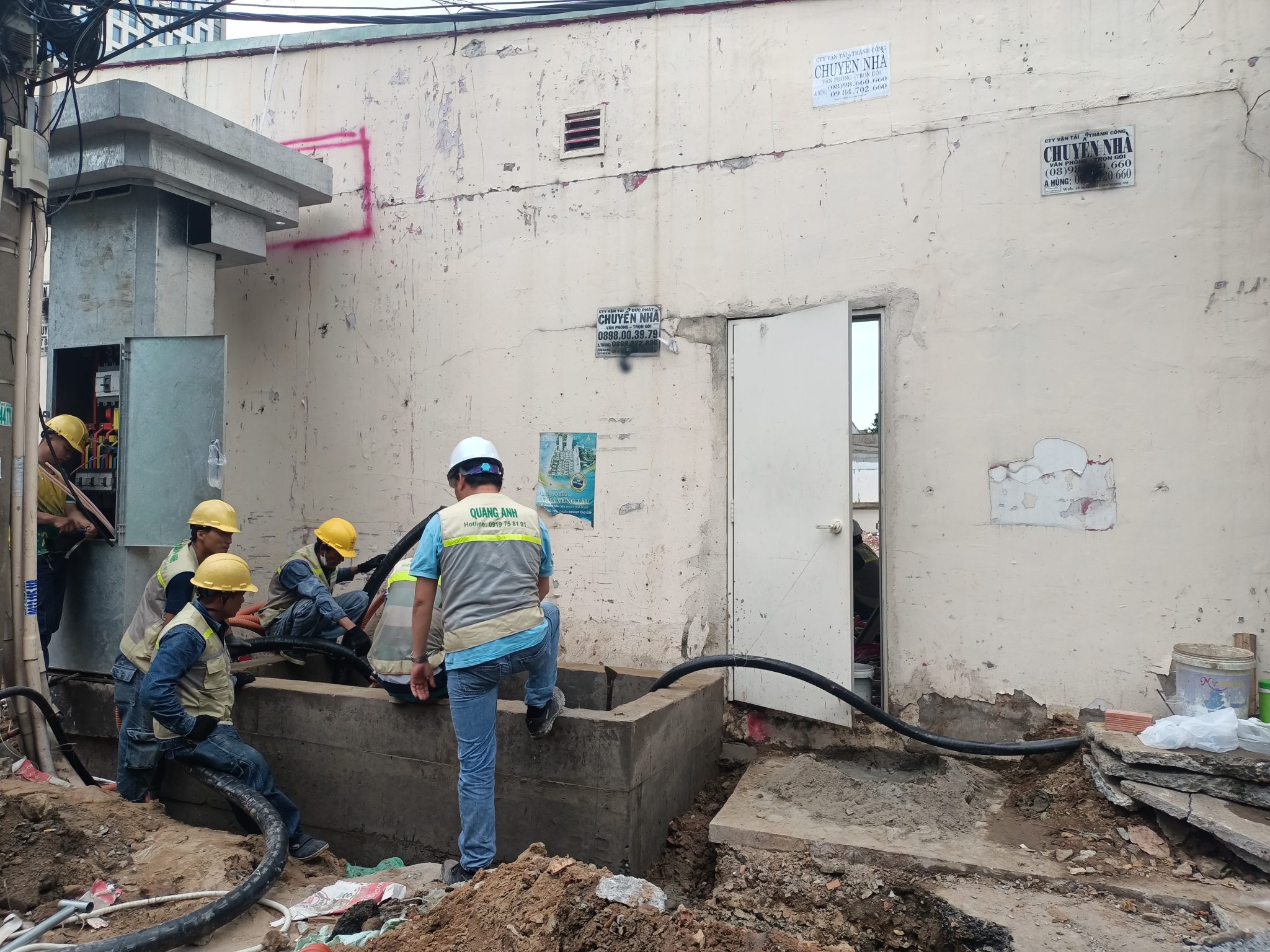
Goals and Benefits of EV Charging Station Maintenance
Maintaining EV charging stations ensures safety by early detection of electrical leaks and shorts, preventing accidents. It also prolongs the lifespan of stations and maximizes operational efficiency, saving time and energy.
EV charging station maintenance is crucial for ensuring vehicle safety, enhancing charging efficiency, and extending device lifespan.
- Ensure Safety: Maintenance allows early detection of risks like short circuits, fires, or mechanical failures, preventing potential safety hazards.
- Increase Device Longevity: Proper maintenance enhances the durability of system components, avoiding unexpected malfunctions and minimizing repair costs.
- Optimize Charging Performance: Ensuring devices operate efficiently optimizes time and energy consumption.
Maintenance Scheduling and Frequency
- Routine Checks: Perform visual inspections monthly to promptly detect wear and damage, such as in cables, connectors, or paintwork.
- Comprehensive Inspections: Track and calibrate devices quarterly based on usage and environmental conditions.
- Special Conditions: Locations with harsh climates or high vehicle traffic may require increased maintenance frequency.
Essential Maintenance Actions
Hardware Inspection
- Ensure that cables and connectors are not frayed or damaged.
- Inspect mechanical parts like charging ports and covers for water or dust ingress.
- Regularly clean stations with suitable materials to avoid damaging paintwork.
Software Updates
- Update software regularly to fix security vulnerabilities and maintain new features.
Performance Monitoring
- Evaluate charging performance and calibrate devices to ensure stability and accuracy during operations.
Maintenance’s Role in Safety and Operation
- Early detection of technical risks prevents major incidents.
- Maintain operational stability, ensuring continuous station functionality.
- Optimize energy usage, reducing unnecessary consumption.
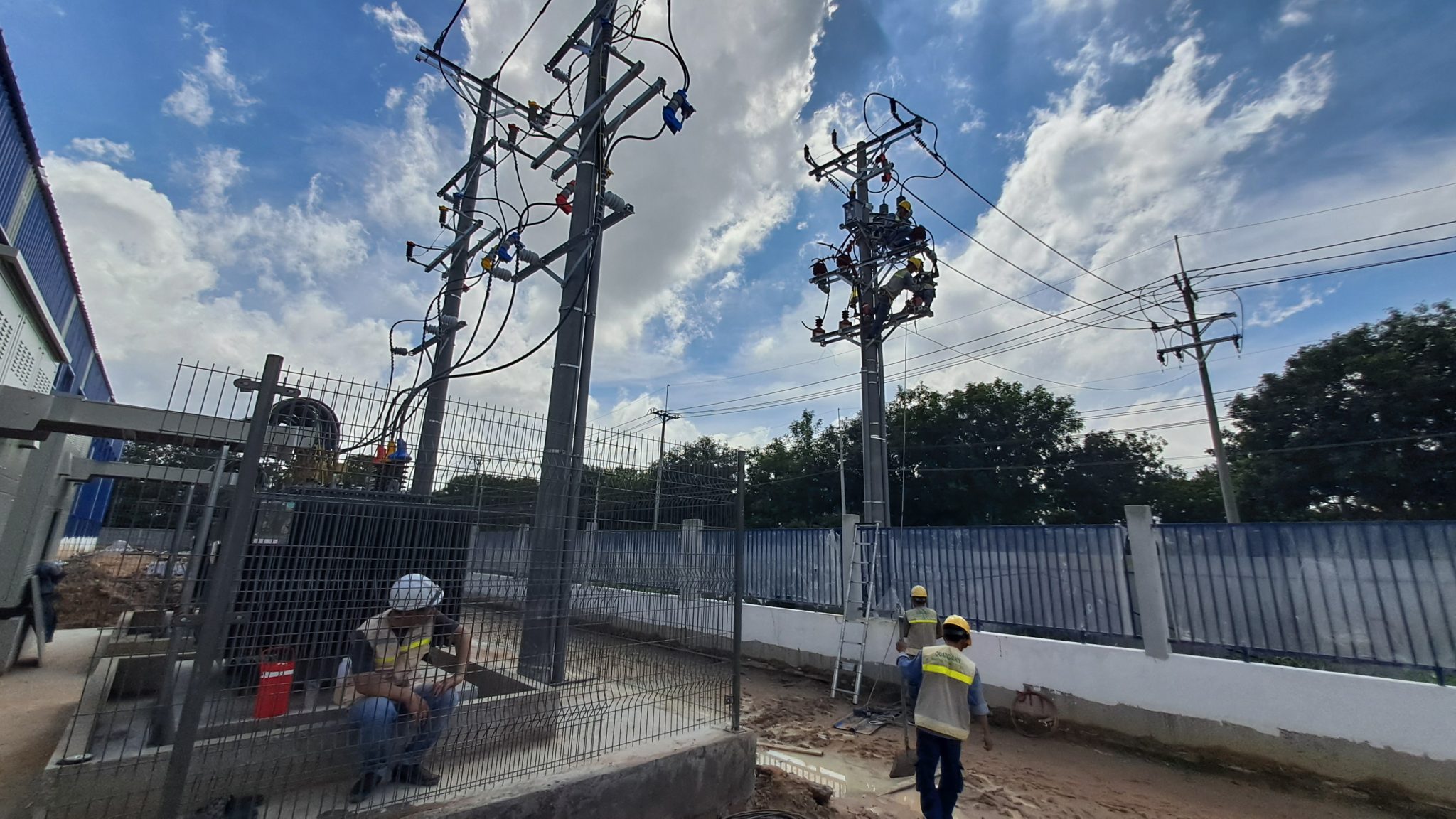
Specific Steps in EV Charging System Maintenance
The maintenance process includes battery system checks, assessments of charging ports and cables, and evaluation of charging performance. This ensures that the battery system operates stably without overheating, and the charging converter works correctly.
- Charging Port and Cable Inspection: This vital aspect of electric vehicle charging maintenance involves inspecting charging ports for signs of oxidation, corrosion, or mechanical damage. For charging cables and converters, ensure there are no cuts, tears, or deformations. This is especially important if cables endure harsh conditions or are exposed to environmental factors such as traffic, flooding, or impacts. Visual inspections are expected weekly or before each use, with independent electrical tests at least annually.
- Evaluate Charging Performance: To evaluate charging efficiency, examine the speed and effectiveness of the charging process, ensuring the battery is fully charged without damage. Regular evaluations help identify performance declines or faults affecting charging time and electricity transfer.
- Inspection and Maintenance of Electronic and Mechanical Components: For the charging station’s electronic and mechanical parts, inspections help identify risks like short circuits, fires, or other technical errors. Replacing aged components, like electrical sockets, is necessary per manufacturer recommendations or technical standards.
- Coolant System Inspection and Maintenance: For charging stations or EVs with cooling systems, regular checks are necessary to ensure efficient cooling and prevent overheating damages.
- Plug Tightness and Electrical Connection Check: Ensuring that plugs are securely connected with proper tension minimizes disconnection risks, overloads, or safety errors during charging.
- Regular Maintenance and Calibration: Conduct regular maintenance to calibrate and fine-tune equipment, optimizing performance while conserving time and energy, and extending device lifespans.
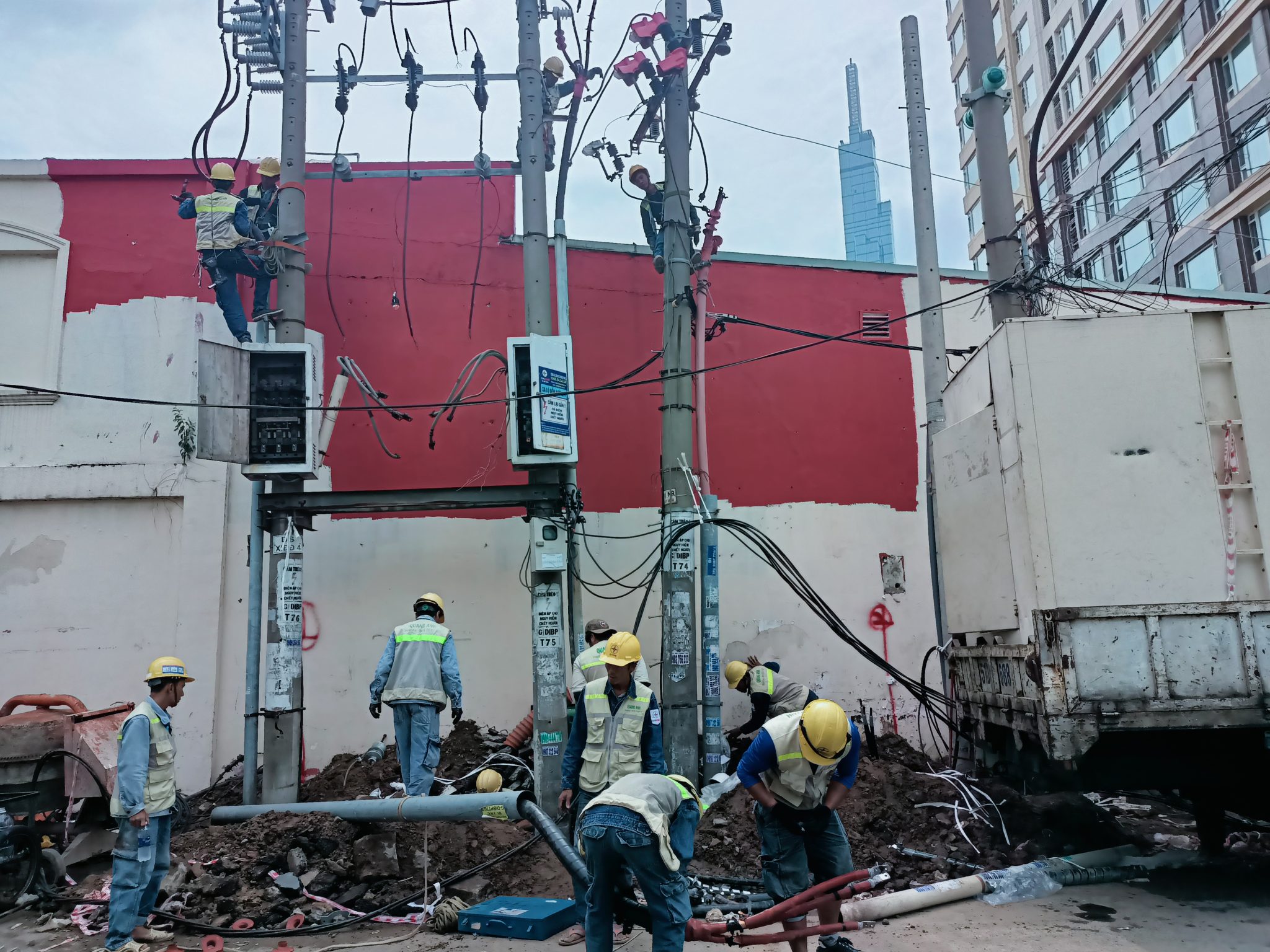
Other Crucial Considerations in EV Charging Station Maintenance
Design inspection schedules tailored to the real conditions of each charging station, ensuring personnel with expertise handle management. Maintaining maintenance records is also a necessary activity to support management and system upgrades.
- Ensure Electrical Safety and Fire Prevention: Periodic maintenance of EV charging stations is essential to ensure comprehensive electrical safety. This process checks for and detects risks leading to shorts or fires, while keeping the station operating at optimal efficiency.
- Inspection and Maintenance of Charging Cable Quality: Cables should be carefully monitored before use to ensure no mechanical or insulation damage. Additionally, annual electrical tests are necessary for long-used cables exposed to environmental factors.
- Periodic Replacement of Cables and Sockets: Over time, charging cables may wear out or be damaged, directly affecting performance and safety. Periodic replacements not only ensure stable connections but also enhance the charging station’s effectiveness.
- Check Plug Tightness: To ensure plug safety, it’s important to maintain appropriate tightness, avoiding loose conditions that lead to short circuits or unexpected issues.
- Lighting Maintenance at Charging Stations: A well-lit station not only provides convenience for EV users but also ensures safety, reducing accident risks.
- Equipment Inspection and Calibration: Controllers and power supplies need periodic inspections and calibration to guarantee maximum efficiency, energy conservation, and reduced charging time.
- Check Protection and Cooling Systems: Cooling systems and overload protection devices need thorough inspections to prevent faults and extend the station’s lifespan.
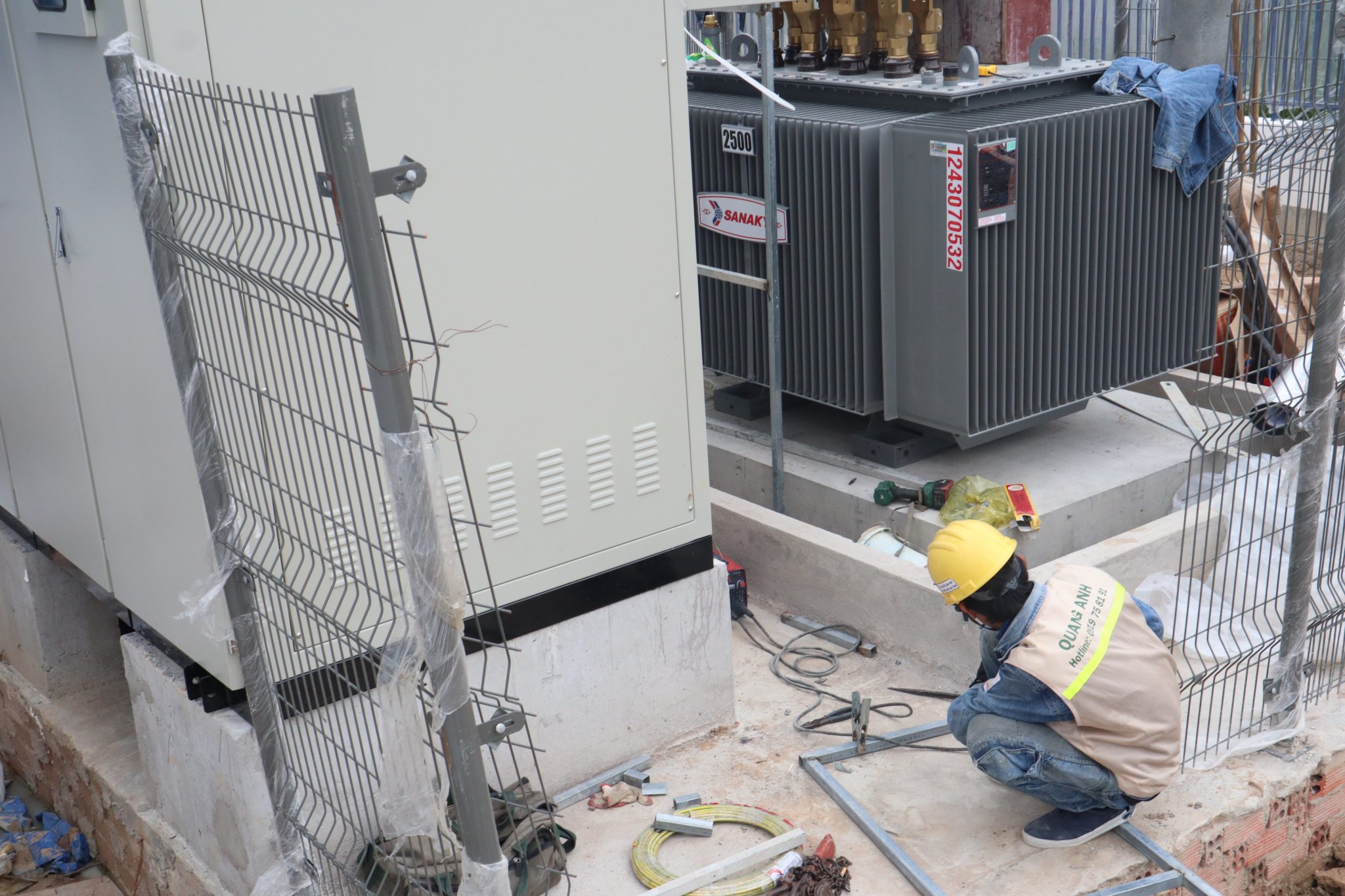
Maintaining EV charging stations provides technical benefits such as enhanced safety and performance while offering significant investment and strategic value in building a sustainable and reliable EV ecosystem.
To ensure your EV charging station performs optimally, contact QuangAnhcons at Hotline: +84 9 1975 8191 for suitable maintenance solutions.
QuangAnhcons offers comprehensive EV charging station maintenance, ensuring safety, high performance, and longevity for your charging system.
[contact-form-7 id="7239967" title="Contact form 1"]

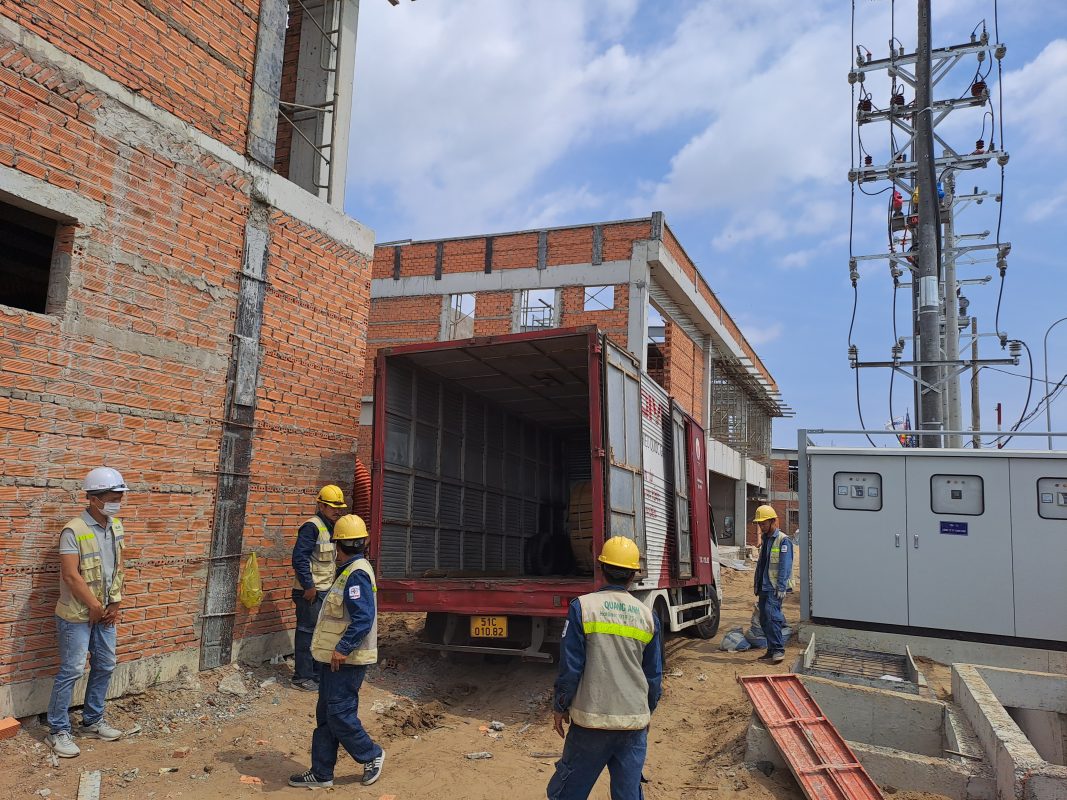
Related Posts
Tay Ninh Solar Power Planning: Technical Framework, Grid Interconnection, and Rollout Roadmap
Technical overview of solar planning in Tay Ninh: irradiation, grid capacity, permitting, design, operations, and [...]
Dec
Binh Duong Solar Planning: Regulatory Framework, Grid Interconnection, and an Implementation Roadmap for Factories and Industrial Parks
An overview of Binh Duong solar planning: legal framework, interconnection, design, risk management, and an [...]
Dec
Solar Farm Repair: O&M Workflow, IV Curve Diagnostics, Thermography, Inverter Service and Utility-Scale Safety
A utility-scale solar farm repair plan centered on O&M, IV curves, thermal imaging, inverter service, [...]
Dec
Dong Nai Solar Power Plan 2023–2025: Tri An 1,029 MW, Grid Upgrades and the DPPA Pathway
A complete look at Dong Nai’s solar power plan: Tri An 1,029 MW, irradiation potential, [...]
Nov
Quang Ngai Solar Power Plan 2024–2030: Legal Framework, Irradiance Potential, and Development Roadmap
A complete look at Quang Ngai’s solar power plan: capacity targets, irradiance (PVout), development zones, [...]
Nov
Solar Damage Assessment Services: On-Site Procedures, EL/IV/Thermography Testing & Compliance with Standards
Discover IEC/UL/NEC standard solar damage assessment processes: on-site evaluation, EL and IV curve testing, thermal [...]
Nov
Comprehensive Package Estimate for a 1800MVA 500kV Substation: Scope, Configuration 3x600MVA, Standards and Timeline Management
An overview of the 1800MVA 500kV substation estimate: construction scope, configuration 3x600MVA, GIS/AIS, SCADA, standards, [...]
Nov
Factory Electrical Systems: Comprehensive Design and Implementation Guide
Discover the detailed and safe process of factory electrical systems design and implementation. [...]
Oct
Blueprints Required for Factory Construction Permits
Discover the necessary blueprints in factory construction permit applications, from floor plans to electrical and [...]
Oct
What Are the Requirements for a Factory Construction Permit? A Comprehensive Guide
Explore the documentation and steps needed to secure a factory construction permit for streamlined project [...]
Oct
Factory Construction Permit Procedures in Vietnam: Essential Guidelines and Documents
Learn the procedures for securing a factory construction permit in Vietnam, focusing on document preparation [...]
Oct
Key Steps in the Factory Construction Process
Discover the essential steps and requirements for building factories. [...]
Oct
Comprehensive Electrical Substation Solutions by Quanganhcons
Discover the cutting-edge electrical substation solutions offered by Quanganhcons for industrial applications. [...]
Oct
Investment Costs for a 1MWp Solar Power System and Influencing Factors
Explore the investment costs for a 1MWp solar power system in Vietnam and the influencing [...]
Sep
QuangAnhcons: Elevating Wind Energy Solutions
Explore QuangAnhcons' leadership in wind energy and renewable solutions in Vietnam. [...]
Sep
Electrical Contractor Strategies at Becamex Industrial Park
Discover the strategic advancements and partnerships of the electrical contractor at Becamex Industrial Park. [...]
Sep
Investment Insights for 1MW Wind Energy in Vietnam: Costs and Opportunities
Discover the detailed analysis of costs and opportunities for investing in 1MW wind energy projects [...]
Sep
Advanced Electrical Installation Solutions by QuangAnhcons
Explore advanced electrical installation solutions and modern technology with QuangAnhcons. [...]
Sep
Enhancing Industrial Electrical Services with Quanganhcons
Discover Quanganhcons' expertise in industrial electrical services, offering efficient and sustainable power systems. [...]
Sep
Comprehensive MEP Solutions by QuangAnhcons: From Design to Maintenance Excellence
Discover optimal MEP solutions with QuangAnhcons, dedicated to excellence from design through maintenance. [...]
Sep